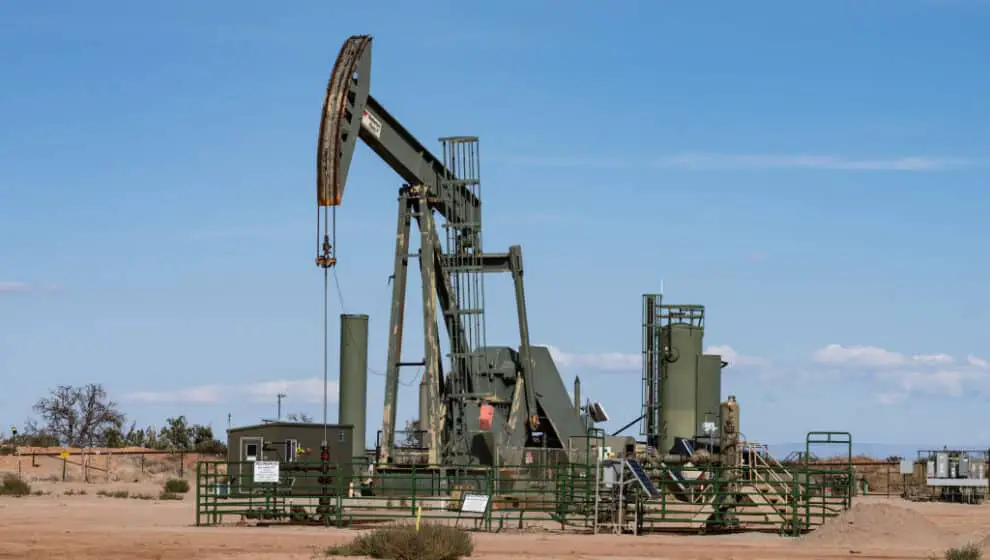Talks about a potential increase in OPEC oil production have led to a sudden decrease in oil barrel prices.
Key Details
- After reports from the Wall Street Journal indicated that both Saudi Arabia and other OPEC producers were considering increasing crude oil production, oil prices fell.
- If OPEC increases its production, areas affected by sanctions on Russian oil could feel some relief.
- More strict sanctions will take effect on December 5, further restricting European access to energy.
- OPEC and a few additional countries, known as OPEC+, will discuss an increase of 500,000 barrels per day at a December 4 meeting.
- After the rumors of an increase began circulating, oil prices fell 5% and Brent crude—a standard benchmark—began trading at $86.25 on Monday.
- Saudi officials have denied the rumors of an increase in production.
- If OPEC members want to increase production, they will likely face opposition from Russia—a member of OPEC+.
Why it’s news
Last month, OPEC announced plans to reduce oil production by around 2 million barrels per day. This move frustrated U.S. officials as they had requested OPEC delay its production cut for a month.
The price of a barrel of crude oil is, like all things, driven by supply and demand, but unlike the majority of the market, a significant portion of the oil market is controlled by OPEC. The 13-nation alliance controls approximately 40% of the global oil supply.
By regulating the amount of oil productions, OPEC is also able to largely control oil prices. However, oil producing nations outside of OPEC help keep total price control from remaining with OPEC.
Unlike the price of a gallon of milk, which generally rises over time with the inflation rate, oil prices fluctuate greatly depending on global events and other external pressures not related to inflation. In July 2008, oil prices reached $128 per barrel as the U.S. was in the midst of the Great Recession.
In 2020, while the world was largely shut down due to the COVID-19 pandemic, oil prices reached $15 per barrel—even dropping below $0 per barrel for a few days.
A decision to increase production now would seem strange as oil prices have recently declined more than 10%.
OPEC+ reportedly plans to meet on December 4 to discuss a possible 500,000 barrel per day increase—just a day before additional European sanctions on Russian oil will take place. The new sanctions will impose a price cap on Russian crude oil sales.
Russia has stated that it will not sell oil to any country imposing the price cap. This could potentially further decrease Russia’s ability to sell oil. Saudi officials on the other hand have said that they will sell oil to whoever wishes to buy it.
Saudi officials have denied that a production increase is being considered and have stated that a production cut is on the table, The Wall Street Journal reports.
Saudi Arabia and Russia have been at odds in the past, but a disagreement over whether or not to increase production would be significant as both countries make up a large supply of the world’s oil production.
Rumors of a production increase began after the Biden administration suggested sovereign immunity for Saudi Crown Prince Mohammed bin Salman following the killing of Saudi journalist Jamal Khashoggi.
Any increase in production would be in response to increased demand over the winter.
Backing up a bit
Currently, the average diesel price is $5.23. In October last year, the price of diesel was $3.61.
Rising costs of diesel are a problem for everyone. The fuel is a valuable resource for the U.S. supply chain as well as the main fuel used in farming equipment. Additionally, many homes in the North Eastern U.S. use diesel to heat their homes.
Diesel supply in the U.S. is at its lowest point since 2008 while demand for the fuel has spiked to the highest rate since 2007.
The price of diesel is directly related to the price of a barrel of crude oil. Gasoline and diesel both begin as crude oil, however, the refining process creates two different fuel types. Typically, diesel fuel is thicker than gasoline, increasing the fuel’s energy density.
Diesel engines often have better fuel economy than gas engines since diesel evaporates more slowly than gasoline.
Despite coming from the same source, diesel prices are rising more quickly than other forms of crude oil. This is partly due to the broad versatility of diesel.
Trucks, trains, buses, and farming equipment are all powered by diesel. If the prices in these industries go up, consumers can expect to see greater prices in food and shipping. In some places, diesel is also an important heating fuel. Low supply is making the cost of heating a home increase.
Some manufacturers have had to switch to diesel fuel in recent months in order to continue running their facilities.
